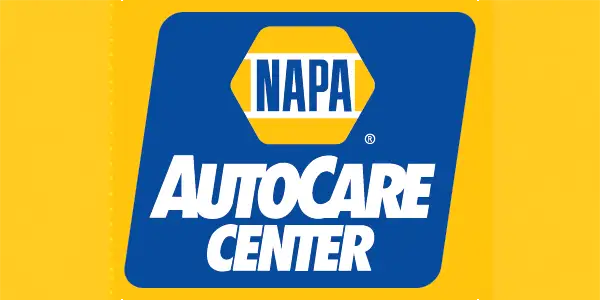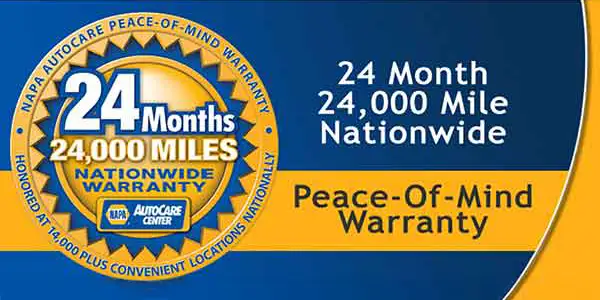
Repair Services From North Texas NAPA AutoCare
Peace Of Mind Warranty
The North Texas NAPA Auto Care Group
For mechanical repairs, your local NAPA AutoCare Center in North Texas area can provide you with a number of benefits, the foremost being integrity. NAPA AutoCare Center owners know that, as a consumer, you have the right to choose where you decide to take your vehicles for service. Therefore, NAPA AutoCare Center owners provide services you can trust.
Quality Auto Repair Service, Every Time!
Maintaining and repairing today’s vehicles can be a pleasant experience when you deal with professionals. Your local NAPA AutoCare Center team can recommend a preventive maintenance program that is right for each vehicle your family owns, saving you time and money in the long run.
Preventive Maintenance & Minor Auto Repairs
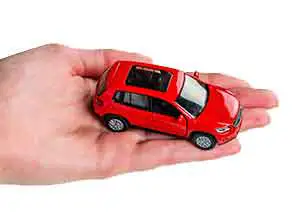
Vehicle maintenance is a necessary part of vehicle ownership. North Texas cars and trucks tend to be more reliable than they used to be. They are well made and use new automotive technologies to make driving and maintaining your vehicle easier than before. But don’t get complacent. Routine vehicle maintenance by certified auto mechanics improves the longevity and reliability of your vehicle. It also saves you money by catching problems before they lead to costly repairs.
Most significantly, auto service and auto maintenance by certified mechanics like the auto mechanics in North Texas that you find at our NAPA auto repair locations, ensures that your car or truck operates the way you expect it to and performs the way you need it to in order to keep you, your passengers and other drivers safe on the road.Some of the basic vehicle maintenance services that our certified mechanics perform include:
Fluids service and replacement (including fuel, coolant and brake system fluids).
Replacement Services like mufflers, fuel filters, brake pads, windshield wipers,
Belts, Timing Belts and Hoses
Our certified mechanics have the knowledge and experience to complete these basic vehicle maintenance jobs quickly and efficiently so it doesn’t take too much time out of your life.We are not limited in the scope of automotive services that we provide for local North Texas drivers. Our vehicle maintenance services are comprehensive, and include everything from service for shocks and struts to wheel alignment, transmission service, complete auto repair, brake service, valve and other component replacement, tune ups and more.
As important as setting up a regular vehicle maintenance schedule is understanding that you are able to trust the care of your car or truck to reliable, capable certified mechanics. This is the kind of peace of mind that we provide to our customers. When you come into a NAPA auto repair location near you, you know that you are going to get the highest quality, honest vehicle maintenance service that you can rely on and that you can return to regularly and with confidence.
Engine Diagnostic Service & Emissions Testing
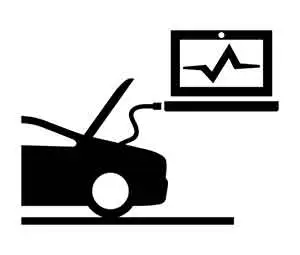
Modern North Texas vehicles have several computers that check and control many things like engine functions, transmission shifts, traction control, anti-lock brakes, stability control, emissions and more.
That means functions that used to be controlled by basic mechanical connections now have electronic controls that rely on computers, software and sensors. It’s no wonder that when something goes wrong with their car or truck it can be pretty complicated for North Texas auto owners to track down the source of the problem.To help your North Texas NAPA AutoCare service specialist figure out what’s wrong, your car or truck is equipped with on-board diagnostics. The Check Engine Light comes on to tell you there’s a problem and the engine management computer stores a trouble code. Your independent, honest and local North Texas NAPA AutoCare service specialist connects a scan tool to your vehicle’s diagnostic port and retrieves the trouble codes as well as other important data.
Trouble codes are like clues for the North Texas technician to follow as he diagnoses what’s wrong with your car or truck. In a way, it’s like going to your North Texas doctor with a problem. She’ll run some additional tests and gather the information she needs to make a diagnosis and form a treatment plan. How much a vehicle diagnosis costs at North County NAPA AutoCare in North Texas depends on how much time it takes to sort out the symptoms and find the underlying problem.
Brake Service
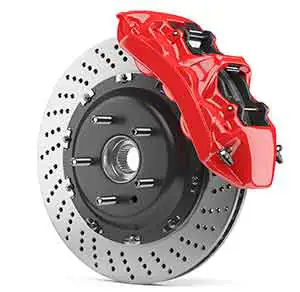
When it comes to preventive maintenance and car care, most North Texas drivers know how critical it is to check their brakes. But brakes are more than just brake pads and shoes. There are a lot of components in the brake system, and they all need to be in good working order.
The pads and shoes are known as the friction materials in the brake system. They push together, providing friction, which stops the vehicle. It’s no wonder they have to be checked regularly for wear, and that brake pads and shoes need to be replaced periodically.Brake pads/shoes gradually wear out, but that doesn’t mean your braking gradually becomes less effective. The pads are engineered so that they maintain good braking until they wear too thin to provide adequate friction. At this point, they need to be replaced.
But your braking system also has mechanical parts. These pistons and springs can also gradually wear out or get gummed up by oil, dirt and other road spatter. A brake inspection in North Texas at North Texas NAPA AutoCare includes a check of these parts as well as the pads and shoes. Your independent, honest and local North Texas NAPA AutoCare tech can then advise you of any parts that need cleaning or replacement.
The fluid component to the brake system needs a regular check-up at North Texas NAPA AutoCare as well. The brake fluid cools and protects your brake system. Protective additives are gradually depleted by the operation of the brake system, and moisture build-up inside the fluid can diminish its effectiveness. When you have your brakes serviced at North Texas NAPA AutoCare in North Texas, the fluid should be checked and, if needed, replaced, which will clean out water, debris and dirt.
It is critical to remember that your brake system also includes your tires. No matter how well your brake system is performing, if your car or truck tires are worn, you won’t get good stopping power. Traction is the gripping power of your tires to the roadway. Traction is always better on tires with a good tread. Good traction translates to good braking.
This is particularly important on wet San Marcos roads. A good tire will give you good braking on either wet Texas roads or dry. But stopping distance increases dramatically when worn tires meet wet roads. Tread on a tire acts to channel away water as the car or truck passes over the wet road, thus maintaining contact between the tire’s surface and the road, which maintains traction. But the thinner the tread, the less effective the water channels become, and water can get between the tire and the roadway, reducing friction. A loss of friction means a longer stopping distance and possibly the loss of control.
Braking depends on two things: the weight of your car or truck and the speed of the vehicle. The heavier the vehicle or the faster the vehicle, the more braking power it requires. Thus, brake systems vary from vehicle to vehicle. For example, a pickup that is designed for heavy loads has a more powerful braking system than a compact car. Sports cars also have higher-grade braking systems than minivans.
Regardless of what kind of car you drive in North Texas, it is always good auto advice to keep your brake system in good repair, and that means ALL of your brake system. Just one more way to keep your travels accident and worry-free.
Diesel Service and Repair

Diesels are popular in North Texas because they get better fuel economy than gas-powered engines. They also last longer. Modern diesel engines are quiet and powerful. And if you associate diesel engines with black smoke, then you’re not up with the times. That smoke is a thing of the past. Diesels don’t produce any more pollutants than gasoline engines. The pollution standards for diesel-powered vehicles are as strict as for other vehicles.
Preventive auto maintenance for diesel vehicles has also become similar to that of gas-fueled vehicles in recent years. The major difference is that diesels require cleaner fuel, air and oil, so their filters are more expensive in North Texas than those for gasoline engines. The engine air filter must be changed more frequently as well.Also, diesel engines can run on bio-diesel fuels as well as fossil fuels. Diesel fuel can be produced from vegetable oil or from cellulose waste like wood chips and sawdust. In North Texas, we may soon see bio-diesel produced from algae. These fuel sources will lessen North Texas car owners’ dependence on fossil fuels and may even become truly renewable and sustainable.
The costs for car care and repairs in North Texas are similar. Wait, you may be thinking, but you just told me that filters are more costly and have to be changed more regularly. True, but that is offset by the fact that diesel engines have a much longer lifetime than gasoline engines. So if you are the type of owner who prefers to hang on to a vehicle for a long time, you will be more than rewarded with a diesel engine.
Fuel Systems and Fuel Injection Service

Good car care means following recommended schedules for preventive maintenance, including checking your fuel injection systems and changing your fuel filters. Take the auto advice offered in every owner’s manual and have your vehicle regularly inspected at a North Texas NAPA AutoCare member center. It may save Dallas area car owners money by preventing costly repairs, but it will also repay them in improved gas mileage, safety and peace of mind.
A fuel injector is a valve that delivers fuel to a vehicle’s engine. It has to deliver the precise amount of fuel, to precisely the right place, precisely when the engine needs it. The fuel also has to be mixed with air before it can burn in the engine. Fuel injectors are engineered to spray fuel in a specific pattern into the engine. (The pattern varies by engine type and design.) In order to achieve these spray patterns, the fuel must be pressurized. Because fuel injectors are such precision instruments, dirt and contaminants are a serious detriment to their performance. When an injector gets gummed up, it affects the pressure, pattern and timing of the fuel delivery. The result is a decrease in fuel efficiency and loss of engine performance.So it’s important to keep your fuel injectors clean. That starts with keeping the fuel in your tank clean. High-quality fuel contains detergents and additives that help clean your engine. Brand-name Texas fuel companies also deliver a more consistent quality of fuel than do bargain stations in the North Texas area. The second way to keep your injectors clean is to keep your fuel filter clean. This filter screens dirt and rust out of the fuel as it travels from the tank to the engine. If the filter clogs up, fuel will bypass it and carry its load of dirt into the engine.
Check your owner’s manual or a North Texas NAPA AutoCare member center to find out how often you should change your fuel filter. This should be part of your regular preventive maintenance. Also, remember that if you use bargain-brand or low-grade fuels, or if you drive an older vehicle, your filter will need to be changed more often. If your fuel injectors are gummed up, you can get a professional deep cleaning service at a North Texas NAPA AutoCare Member Center that will result in better gas mileage and improved vehicle performance.
Suspension & Shocks

Your car’s suspension is very critical because it keeps your car up off the road and helps provide a comfy ride. It needs to keep your wheels firmly planted over bumps and through curves. Your suspension system has many parts. If you look under your car, it’s basically everything that connects your wheels to the car’s frame. These are heavy duty parts that do a lot of work. They need to be inspected for damage and excessive wear at least once a year. A good time for this is when you get your annual alignment service.
Here are some warning signs that your suspension may have problems:- the car pulls to one side;
- it wanders;
- the steering is erratic;
- you see uneven tire wear;
- you experience a poor ride or handling;
- you see oil leaking from shocks
- . . . you get the picture. You just don’t feel in control when you’re driving.
Some suspension parts just wear out with use. Shocks and struts eventually lose their ability to control your ride. Wheel bearings need to be repacked every couple of years. And some suspension pieces need to be lubricated when you get your oil changed. Your service advisor can oversee an inspection and tell you what problems you may have.
If you’re in an accident, your suspension can be damaged or knocked out of alignment. Even a minor accident, like hitting a curb around North Texas or even a large rock can mess things up. With a minor accident it’s tempting to just get an alignment or wheel balance to correct the problem. But if there’s some damage, a simple alignment won’t actually fix the problem, and you’ll just have to align it again after the repairs are made. So if you have an accident, get your suspension system inspected right away. Suspension problems should be fixed immediately because they can lead to unsafe handling.
One big cause of suspension damage is potholes – those nasty magnets that seem to draw our tires right into them. Here are some tips for avoiding damage from potholes: First, keep your tires at their full air pressure. That gives tires their maximum resiliency and will hopefully keep your wheels or other suspension parts from crunching on a big hole. Next, just pay attention. When you see a hole you can’t miss, slow down before you hit it. Driving at a slower speed will limit the damage, and may keep your drink from spilling. But don’t brake directly over the pothole. That will cause the car’s weight to shift forward and add to the potential damage.
So don’t put off an inspection of your suspension. We promise to make it as painless as possible.
Air Conditioning Service

Avoid one of the most common auto air conditioner repair mistakes and remember to bring in your car for auto air conditioning repair service before the A/C fails. Regular auto air conditioning service in accordance with manufacturer recommendations will help to keep your A/C running smoothly when you need it and save you the surprise and the hassle of an air conditioner failure. It should be no surprise that air conditioning repair requests are one of the most common auto service requests that auto technicians in North Texas see. If the air conditioner in your vehicle is acting up, including pumping out a stale smell, failing to hold the temperature you set or taking too long to cool, bringing it in for immediate air conditioning repair is the smartest choice. Auto air conditioners can break for a number of reasons. These reasons can include: low levels of refrigerant, a faulty compressor and corrosion.
Refrigerant is a compound that contains a lubricant that is designed to keep the parts of your A/C from wearing down prematurely and necessitating air conditioning repair. Individual parts within the system can break down or start functioning improperly when the refrigerant gets too low. To prevent this, we recommend regular auto air conditioning service to flush and replace the refrigerant in your car or truck.The compressor is a common part that requires air conditioner repair. A signal that auto air conditioner repair is required for the compressor is when your air conditioner starts making sounds when it is turned on. Because the compressor connects to the engine via a belt, that belt can snap, tear or crack. This results in the sound you hear when you turn on the system. Air conditioner repair for the compressor includes both repair and replacement of the part, as well as a full test for leaks or other breaks.
Corrosion is a significant problem and a frequent reason for auto air conditioning repair. Leaks in the air conditioning system are often to blame for corrosion. This is a scenario in which early auto air conditioning repair or, more importantly, regular air conditioning service, can prevent more serious problems before they arise. If you bring your vehicle in for auto air conditioning service according to the recommendation by the manufacturer, then we are able to spot leaks in the A/C system right away. We can then perform simple auto air conditioning repair to fix those leaks before they impact the entire system. When left unfixed, the leaks create excess water in the system and that water starts to corrode the most important parts of your system, leading to air conditioning failure and the need for more extensive auto air conditioner repair.
Transmissions
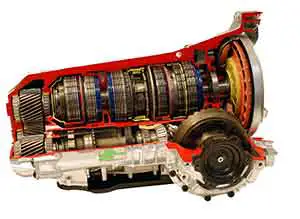
When considering whether it is time for transmission repair or transmission service, our auto technicians in North Texas insist that it is best to first know how your transmission works. The transmission takes power from the engine and routes that power to the wheels. In order to function properly, the transmission system needs to be lubricated at all times. A lubricated transmission delivers good fuel economy and maximum efficiency.
If you start to see your gas mileage getting worse, you may need transmission repair. Gas mileage starts to decrease when the transmission becomes dirty or starts to wear. This can happen when the transmission is not lubricated, or if there are other problems arising in your transmission system that require transmission repair.Transmission service and automatic transmission repair are common auto service jobs performed at our NAPA auto repair centers. And like these auto services, as well as complete auto repair, transmission service is required to keep your vehicle running. The transmission system is subject to wear and tear, because it is in constant use and in constant motion when you are driving. Gears moving in the transmission system can cause clutch material to wear down, which deposits clutch materials into the transmission fluid. The transmission fluid then carries this to the rest of the system, where it slows down the system. This will quite simply gunk up the works. And this is the time when you will start to see and feel the signs that it is time to take your car or truck in for transmission repair.
Scheduling regular transmission service can prevent you from needing emergency auto transmission repair. Regular transmission service can also extend the lifetime of your transmission system which, in turn, improves the long-term health and reliability of your car or truck. Transmission service can include transmission flush service, as well as other types of automatic transmission repair.
Having clean transmission fluid is especially important to ward off the need for automatic transmission repair and to prevent the damage that a faulty transmission can cause. Not only does transmission fluid keep the transmission lubricated, it also keeps the transmission from overheating. As with other systems in your vehicle, overheating can damage individual parts and put your entire engine, and your vehicle, at risk. Basic transmission service goes a long way to ensure that the transmission system is properly lubricated and able to keep itself cool.
Transmission flush service is a basic auto repair North Texas drivers need to remember to schedule. Transmission flush service is a helpful transmission service that cleans and replaces the transmission fluid in your vehicle. Cleaned and replaced transmission fluid helps the system function properly, keeping the power going to your wheels the way you need it to for safety, performance, and maximum fuel economy. A transmission flush service will keep the transmission system lubricated. The transmission flush service also removes any dirt, mineral or material deposits that can get into the transmission and slow the system down.
Power Steering

For most of us, it is hard to remember life without power steering – cranking those great big steering wheels? It was a pretty good workout. Now power steering is standard. The heart of any power steering system is its pump. The pump pressurizes the power steering fluid that provides assist for steering. Most pumps are driven by a belt that is run by the engine – a few are electrically powered. A high-pressure hose passes fluid from the pump to the steering gear. A low pressure hose returns the fluid back to the pump.
These hoses can develop leaks, so it is a good idea to inspect them at every oil change. Low fluid can damage the power steering pump. That is why fluid level is on the checklist for a full-service oil change. The fluid needs to be compatible with the hoses and seals, so check your owners’ manual for the right type – or just ask your service technician.The fluid cleans, cools and lubricates the power steering system. It breaks down as the years go by and collects unwanted moisture, so it needs to be replaced from time to time. Many manufacturers specify power steering service intervals. Unfortunately, this important service is sometimes left off the maintenance schedule. So, when in doubt, every 25,000 miles/40,000 km or two years is a good fallback. Your local NAPA member service center will use a detergent to clean the system, flush out the old fluid and replace it with the good stuff.
Here are some warning signs of trouble with your power steering: It’s harder to turn the wheel, there’s erratic power assist, you hear loud whining coming from the pump, you have to top-off the fluid frequently, or you hear squealing belts. Remember to never hold the steering wheel to the far right or left for more than a few seconds at a time. That will wear out your pump real fast.
Other steering components can be bent or damaged from wear or hard knocks. Ball-joint, idler-arm, steering-gear, steering-knuckle and tie rod to name a few. Warning signs here are steering play, wandering, uneven tire wear, and off-center steering wheel. An annual alignment check at one of our NAPA AutoCare Centers will reveal bent or damaged steering components.
Most SUV’s, pick-ups and rear-wheel-drive cars need regular front-wheel-bearing service. The bearings should be cleaned and inspected. If they are excessively worn, they need to be replaced. The bearings are then repacked in clean grease. It’s also recommend the wheel-seal be replaced when the bearings are serviced. Like everything else, check your owners’ manual maintenance schedule. It’s usually required around every two years or 40,000 miles/64,000 km. If you drive through water, the bearings will need service more often.
Exhaust
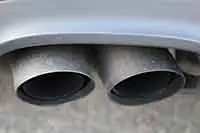
Whenever we talk about exhaust service, most people normally think about exhaust pipes and mufflers. Well, actually, exhaust service is a lot more comprehensive these days. For example, catalytic converters were mandated in 1976 and on-board emission control computers in 1990. Governmental emissions requirements have forced manufacturers to come up with much more sophisticated ways to comply with environmental regulations. Exhaust service has really become exhaust and emissions service. High-tech computer controlled emissions devices are now a big part of exhaust service. Because it is so sophisticated, your vehicle manufacturer recommends you have your emission system checked out by a qualified North Texas exhaust technician regularly to make sure everything is working right – usually every 6 months or 10,000 miles/16,000 kilometers.
If your Check Engine light comes on, especially if it’s flashing, get your car looked at right away. Technicians at one of our NAPA AutoCare Centers routinely handle emission problems. You might have exhaust or emissions trouble if your car is difficult to start, runs rough, is noisy or smoking. Call a local NAPA AutoCare Member Center. They will help you determine your issue right away.Let’s review the exhaust system. We will start from the top and start with the exhaust manifold. That is the part that attaches to the engine and collects the exhaust from the cylinders and directs it into the exhaust pipe. Exhaust gaskets help seal the connection with the manifold and various other joints along the way. If the manifold is cracked or loose, or a gasket is leaking, dangerous gases could escape into the passenger compartment, where you ride. Carbon monoxide can be deadly, so it is important that your exhaust system doesn’t leak. The exhaust pipes connect the various components. They can rust or be damaged by a rock, so they need to be inspected periodically.
Next is the catalytic converter. This part looks like a muffler. It changes chemicals that are dangerous to your health and the environment into harmless carbon dioxide and water. It doesn’t require any maintenance itself. But eventually they wear out. You will find this out when your car fails an emissions inspection.
Now the muffler. Its main job is to quiet engine noises. Mufflers work by either absorbing or baffling sound. And you can actually customize your car’s sound with different mufflers – anything from whisper quiet to low rumble. Rusted or road-damaged mufflers can leak and need to be replaced right away.
The exhaust system is attached to the car by a series of hangers and clamps. These fasteners hold the system in place. When hangers come loose or break, hot exhaust components can touch and melt wires, hoses and lines.
Finally, we end at the tailpipe. This is the final outlet for the exhaust. These can be plain-Jane or pretty flashy. Also, the oxygen sensors monitor the oxygen content of the exhaust so the engine control computer can adjust the fuel-to-air mix to keep the car running right.
Exhaust and emissions service covers plain old pipes and high-tech computers. It impacts everything from life and death safety due to exhaust leaks, to fine-tuning the sound of your ride.
